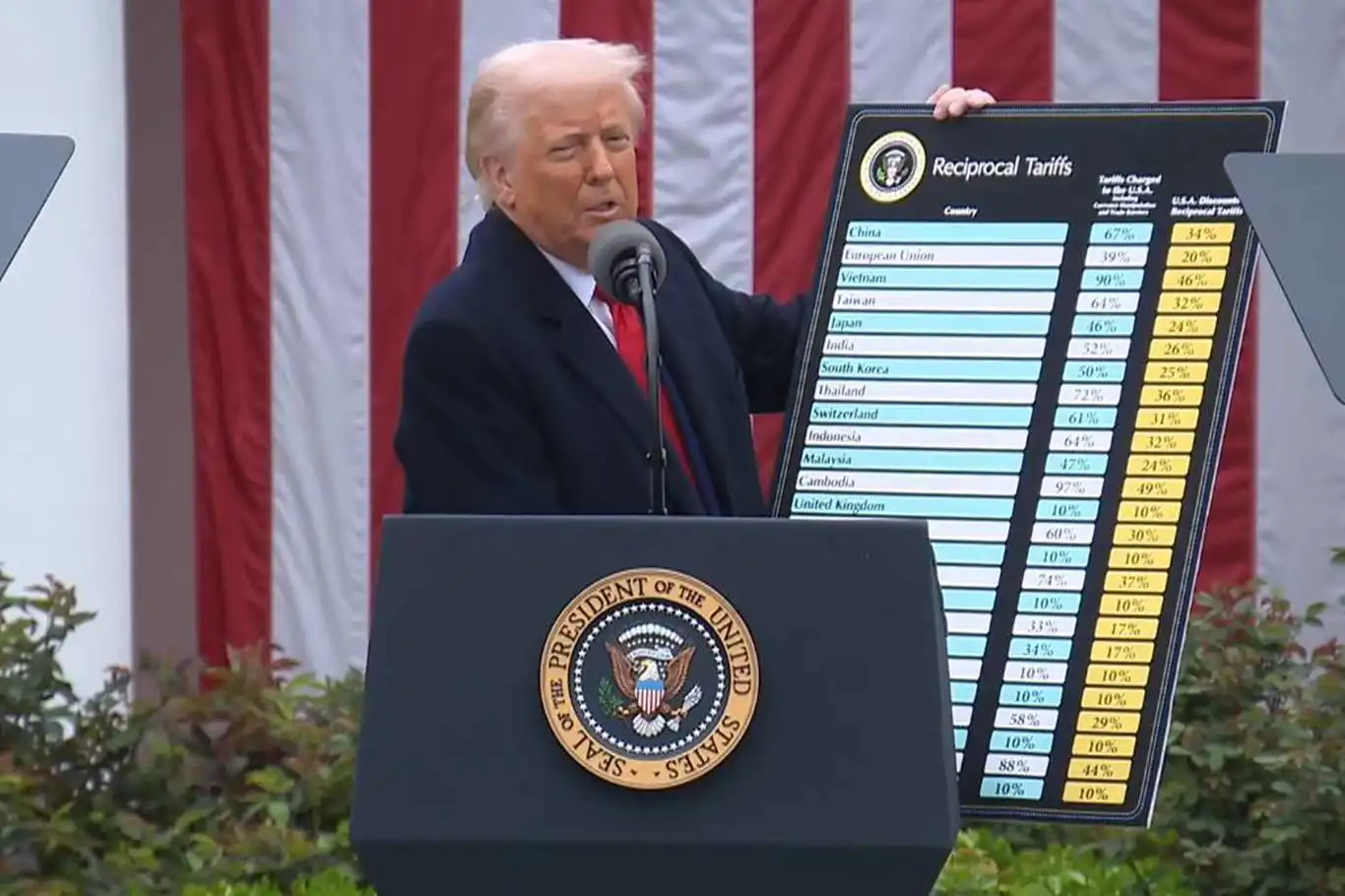Indonesia opts for diplomacy over retaliation against US tariff


Indonesia will not retaliate against the recently imposed steep 32% trade tariff by the United States, opting instead for a diplomatic approach to resolve the trade dispute, Chief Economic Minister Airlangga Hartarto announced on Sunday.
This statement marks the Indonesian government's first official response to the levy unveiled by U.S. President Donald Trump on Wednesday, which is set to take effect this coming Wednesday.
Minister Hartarto emphasized that Indonesia's decision to pursue negotiations with the U.S. is driven by the long-term interests of bilateral trade relations, the desire to maintain investment confidence, and the stability of the national economy. "The approach was taken by considering the long-term interest of bilateral trade relations," he stated. He also indicated that the government would increase support for domestic industries expected to be most affected by the tariff, including the apparel and footwear sectors.
The U.S. tariff targets Indonesia along with five other Southeast Asian nations, posing a significant threat to a crucial export market. Government figures show that Indonesia recorded a substantial $16.8 billion trade surplus with the U.S. in the past year, making it the country's third-largest export destination with total shipments amounting to $26.3 billion in 2024. Key Indonesian exports to the U.S. include electronics, apparel, clothing, and footwear.
In an effort to lessen the potential impact of the tariff, Jakarta is scheduled to convene with business leaders on Monday to gather their perspectives and further refine its strategy. Minister Hartarto also revealed that the government is exploring opportunities to expand trade with European countries as a means of diversifying away from reliance on the U.S. and China. Furthermore, a high-level Indonesian delegation is planning to travel to the U.S. for direct discussions with American officials, underscoring Jakarta's commitment to finding a resolution through dialogue.
This measured response from Indonesia highlights its intention to navigate the current economic challenge without escalating tensions, even as the nation prepares for potential disruptions to its export-driven industries. The government's focus on diplomacy and seeking mutually beneficial solutions signals a cautious approach to the newly imposed tariffs. (ILKHA)
LEGAL WARNING: All rights of the published news, photos and videos are reserved by İlke Haber Ajansı Basın Yayın San. Trade A.Ş. Under no circumstances can all or part of the news, photos and videos be used without a written contract or subscription.
Turkish President Recep Tayyip Erdoğan outlined Türkiye’s ambitious export and economic goals during his address at the 32nd Ordinary General Assembly of the Türkiye Exporters Assembly (TİM) and the Export Champions Award Ceremony held in Istanbul.
Türkiye’s foreign trade deficit grew by 2.7% in May 2025, reaching $6.645 billion, according to provisional data from the Turkish Statistical Institute (TÜİK) and the Ministry of Trade.
The Governor of Da Afghanistan Bank has travelled to Rabat, Morocco, leading a delegation to attend the annual Islamic Financial Services Board (IFSB) summit, scheduled for July 1–3 under the auspices of Bank Al-Maghrib, Morocco’s central bank.
Türkiye’s labor market showed signs of improvement as the seasonally adjusted unemployment rate fell to 8.4% in May 2025, down 0.2 percentage points from April, according to the Turkish Statistical Institute (TurkStat) Household Labour Force Survey.